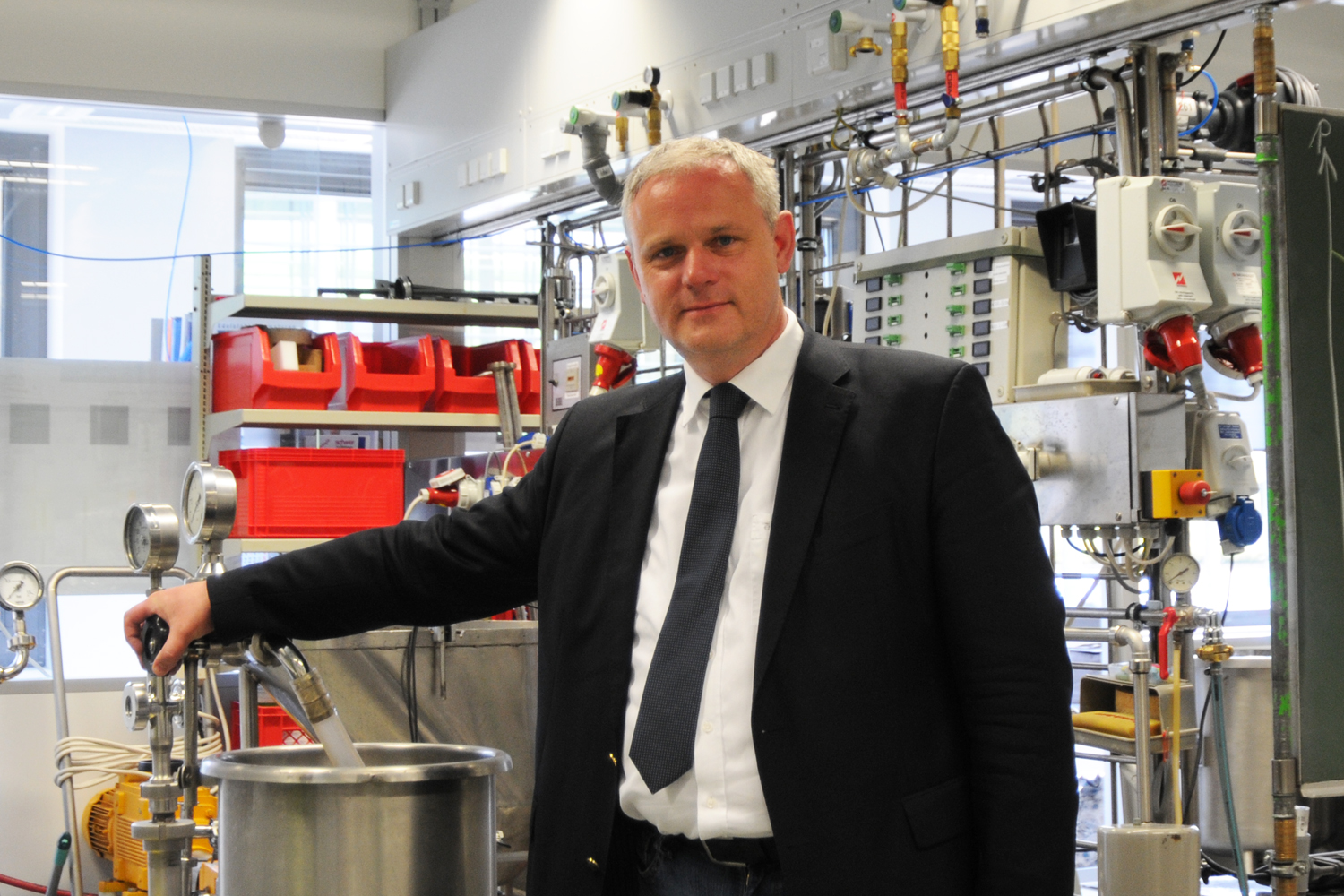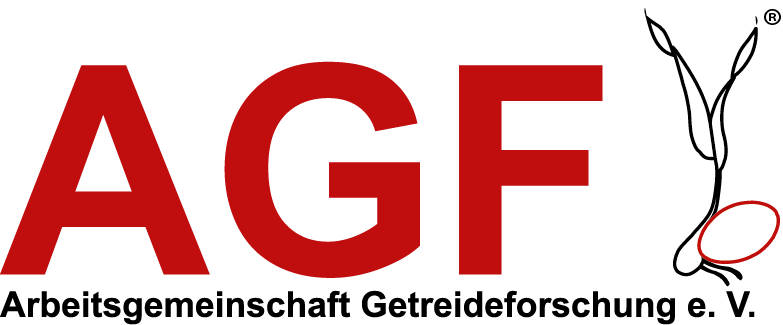9th Paderborn Mixed Media Symposium digital
Dear Sir or Madam,
For well-known reasons, the Paderborn Mixed Technology Symposium cannot take place as an attendance event this year. We are therefore all the more pleased,
to invite you to a digital lecture series. For more than 15 years, the symposium has taken a firm place in the national professional events. We do not want to let this break off even under the current conditions.
Mixing and agglomeration processes for solids play an important role in wide areas of the food industry and other sectors: Instant beverages, tea, pudding powder, instant soups, baking mixes, muesli, mixed feeds and cereals are just a few examples of solid mixes..
Behind all these products is a complex manufacturing process, which has a decisive influence on the product properties and their quality. The properties of the products are essentially determined by the mixing and agglomeration processes.
The aim of the digital seminar series is to provide an up-to-date overview of modern mixing and agglomeration processes, but also to highlight the fundamentals and innovations of solids mixing. Of course, quality assurance also plays a very important role. The participants will be enabled to evaluate, select and use mixing and agglomeration processes and thus to optimize the manufacturing process. Therefore, great emphasis is placed on practical relevance. Translated with www.DeepL.com/Translator (free version)
3 presentations with a length of approx. 30 minutes are planned per date. The number of participants per event is limited. Of course, participation in several dates is possible.
Registrations can be made through this website starting in February 2021.
Certificates of attendance will be issued after the event.
Prof. Rainer Barnekow
Event Director

Programm h2>
Wir haben wieder ein volles und ansprechendes Programm für Sie zusammengestellt. h4>
Start of the event: 10.00 am
Lecture 1
Fundamentals of solids mixing and segregation
Prof. Rainer Barnekow Technische Hochschule OWL
Powder" mixing is often considered trivial. However, under the aspect of ever higher quality requirements for the product and the associated functionality, the greatest demands are placed on the mixing plant and operator.
Mischmechanismen, Einbrigen und Verteilen von Flüssigkeiten in Pulvermischungen, Mischüteverlauf, Segregation, Entmischungsmechanismen.
Lecture 2
Mixing of salt-bound bulk materials
Holger Köhler, Gebr. Lödige GmbH
Using the example of a modular plant concept for the production of functional mixtures.
Culinary, Savory, Functional blends
Lecture 3
Production of ideal bulk mixes - continuous vs. batch mixers
Matthias Böning, amixon GmbH
How can ideally homogeneous bulk material mixtures be produced? Batch blending is contrasted with continuous blending. Hygienic aspects are highlighted.
End of the event: 12.00 pm
Start of the event: 10.00 am
Lecture 1
Beyond Containment - Double flaps and process valves in bulk solids technology
Thomas Merle, Andocksysteme G. Untch GmbH
Containment basics, requirements and solutions for optimized product transfer of closed systems with established multi-use and innovative single-use technologies. Segmented ball valves - the all-rounder among process valves - design and applications for product infeed and discharge.
Lecture 2
Shelf life of instant products depending on the packaging
Sylvia Barnekow, Symrise AG
Shelf Life, Sustainability, Verpackung
Lecture 3
Determination and assurance of the mixing quality when mixing solids
Prof. Ralf Habermann, HS Emden / Leer
Mixing processes are based on stochastic particle transport processes, which means that an exact reproduction of the analysis results will never succeed with multiple repetitions under identical conditions. The user of solid mixing systems has to live with this finding. It is therefore all the more important to arrive at a justifiable decision on the acceptance or rejection of a mixture using suitable aids. Extensive decisions have to be made in advance, such as the definition of the mixing component that is critical for the mixing process, the number of samples, the sample size and the desired reliability of the results or the required mixing quality. The mixer user must be aware of this, because without it, no statement can be made. This technical paper is intended as a guide to mixing quality analysis in order to facilitate the selection of solids mixing systems available on the market and to establish quality assurance in production. Translated with www.DeepL.com/Translator (free version)
Mixing quality, mixing quality curve, mixing component, number of samples, sample size Reliability of results
End of the event: 12.00 pm
Start of the event: 10.00 am
Lecture 1
Ideal moistening of bulk materials
Klaus Meyer, amixon GmbH
How can bulk materials be moistened with ideal accuracy? Different methods of adding liquid to the powdered mix can significantly influence the final product.
Lecture 2
Sweet applications in mixing technology (mixing, coating, conching)
Sebastian Steinkamp, Gebr. Lödige GmbH
Confectionery is very popular with Germans. According to the Federal Association of the German Confectionery Industry (Bundesverband der deutschen Süßwarenindustrie e.V.), each individual consumes a full 30 kilograms of confectionery per capita and year. The main processes in the production of confectionery include homogenization, conching and coating. In all three processes, the use of Lödige Pflugschar® mixers has proven successful. Translated with www.DeepL.com/Translator (free version)
Confectionary, Chocolate conching, Bakery
Lecture 3
Sustainable raw material automation in food production
Andreas Eibner, AZO GmbH
Focus on small component automation, allergen handling and batch tracing
End of the event: 12.00 pm
Start of the event: 10.00 am
Lecture 1
Efficient and fast cleaning of mixers
Christian Schilken, Gebr. Lödige GmbH
A complete cleaning of machines for the production of foodstuffs is inevitable - regardless of the design or residual emptying capability. Lödige uses the example of the Ploughshare® mixer to show what resource-saving wet cleaning can look like.
Water saving, Think green, No contamination
Lecture 2
Cleaning of mixers and equipment during the processing of powders
Sabrina Swieca, FINK TEC GmbH
Lecture 3
The successful dust binding in solid mixtures
Prof. Rainer Barnekow, Technische Hochschule OWL
End of the event: 12.00 pm
Start of the event: 10.00 am
Lecture 1
High level emptying of powder mixers
Markus Mettenborg, amixon GmbH
Which measures can be used to influence the highest possible discharge of powder mixers? Different mixer designs and their main areas of application are compared.
Lecture 2
Functional design of innovative fluid bed products
Henning Falck, Neuhaus Neotec Maschinen- und Anlagenbau GmbH
Bei der Herstellung von Lebensmitteln, pharmazeutischen Präparaten, Nahrungsergänzungsmitteln, Futtermitteln oder auch Agrochemikalien spielen die Eigenschaften von Pulvern, Granulaten und Pellets eine große Rolle für den geplanten Einsatzzweck. Die Wirbelschicht-Technologie bietet vielseitige Möglichkeiten, um diese Produkte durch Granulationsprozesse, Verkapselung oder Coating in ihrem funktionalen Verhalten zu verändern und innovative Produktformen zu erzeugen – ein Überblick über Methoden und Anwendungen.
Fluid bed, instantization, granulation, encapsulation, coating, shelf life
Lecture 3
Superplasticizers - blessing and curse
Prof. Rainer Barnekow Technische Hochschule OWL
End of the event: 12.00 pm
Anmeldung h2>
Jetzt anmelden und einen der begrenzten Plätze sichern. h4>
Participation fee
Free of charge
Unsere Kooperationspartner: h2>
Das 9. Paderborner Mischtechnik Symposium wird Ihnen präsentiert von h4>
Hochschule Ostwestfalen-Lippe
Prof. Dipl.-Ing. Rainer Barnekow
+49 5261 702 454
rainer.barnekow@th-owl.de
Liebigstraße 87
32657 Lemgo
Universität Paderborn
Prof. Dr. Hans-Joachim Schmid
+49 5251 60-2404
hans-joachim.schmid@upb.de
Warburger Str. 100
33098 Paderborn









